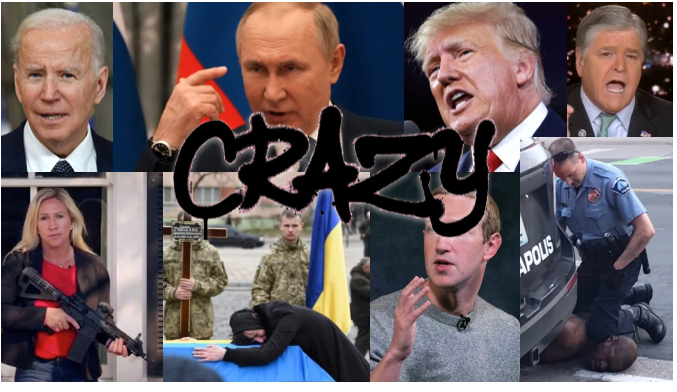CommentsGUEST COMMENTARY - It’s A Dangerous World Out There.
The rise of Tea Party movement began two decades ago. In 2008 the economy tanked, leading to their explosion into the political arena which frustrated government attempts to mitigate the worst hardships for ordinary Americans.
Then, as the economy improved, the level of inequality took off leaving most of those ordinary Americans in the dust, building further resentment.
This fed into the rise of Trump who encouraged too many people’s inner mean to emerge, first at over-the-top rallies and on extremist websites and, seemingly concurrently, pretty much everywhere on social media.
When the pandemic drove us to Zoom, the same nastiness continued to flourish in that face-to-face environment, despite the fact these meetings were often recorded.
What were people thinking of?
That they had some divine right to hurt other people so long as those other people couldn’t reach out through the internet and physically assault them in return?
The proliferation of online vulgarities and cyber-bullying keeps growing.
Social alienation, definitely exacerbated by the pandemic but arising from other sources, has clearly made some people more willing to break the rules and act out both verbally and physically.
Unfortunately, due to availability and to people’s identification with the historical imagery of the Wild West and individuals taking the law into their own hands, in the United States this acting out is too often expressed with guns.
This has been compounded by the role of policing. Most police forces in this country have their roots in groups hired to return escaped property – slaves – to their owners.
Policing can attract people who aspire to have power over others and don’t have the skills or patience to achieve that power through other avenues.
This has led to the rise of Derek Chauvins and other abusers who are supposed to be protecting ALL Americans.
In the real world (IRW for those addicted to social media), many police departments do take seriously their obligation to serve and protect their communities and are often as upset as civilians at the bad apples in their forces.
On the other hand, the rise of Black Lives Matter and various defund-the-police movements across the country has put all police officers at greater risk.
Recent Gallup polls (December 2021 to February 2022) show that between 78 and 82 percent of Americans are dissatisfied with the way things are going in the United States.
People are frustrated, people are angry with the government, the economy and the people around them. Screamfests and vituperative postings abound on social media. It’s my way or hit the highway.
For those who don’t have guns, evidence of this anomie is seen in the increase of car crashes and other self-destructive acts.
Behavior has deteriorated rapidly in the past couple of years, which only encourages tit-for-tat responses in others. Alcohol and drug abuse has increased along with stress, depression and other forms of physical and mental illnesses.
This dysfunction may have been propelled by Covid but it is sustained by the sense of being owed something that people don’t have in their current lives.
This is a continuity of the conception of American exceptionalism that has created the divide between the United States and other countries over the preceding decades.
There are legitimate reasons Vladimir Putin and Imran Khan and Victor Orban dislike the United States. We are not always right.
And now the chickens have come home to roost.
If-you-don’t-believe-what-I-believe does not make someone a bad person, just one with different opinions. No-one needs a gun to defend their beliefs and no-one should feel threatened to express what they believe in.
The question then becomes how we can move to a kinder, gentler, more accepting America.
How do we excise what is part of the American self-image as cowboy and create a new persona for America as a people that contributes to world peace, resolving global issues and, most important, people who reach out and help others in their own communities and around the world?
(Liz Amsden is an activist from Northeast Los Angeles with opinions on much of what goes on in our lives. She has written extensively on the City's budget and services as well as her many other interests and passions. In her real life she works on budgets for film and television where fiction can rarely be as strange as the truth of living in today's world.)







